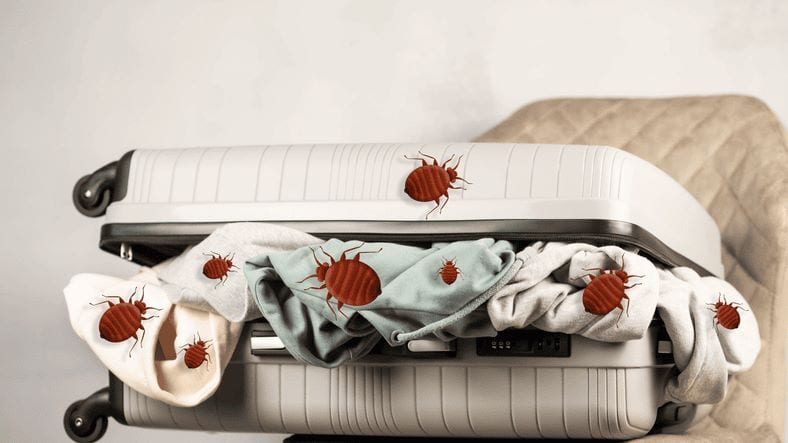
Bed bugs are not just a nuisance; they can also be a serious health hazard, causing discomfort, anxiety, and in some cases, significant physical harm. For individuals who encounter bed bugs in the workplace, whether they are employees of a hotel, apartment buildings, or any other establishment, the question of workers’ compensation becomes paramount. In this article, we’ll delve into the intricacies of workers’ compensation for bed bug-related incidents, including legal considerations, potential claims, and what to do if you’ve been affected.
Understanding Workers’ Compensation for Bed Bugs
Workers’ compensation is a form of insurance that provides wage replacement and medical benefits to employees who suffer injuries or illnesses in the course of their employment. The aim is to ensure that employees receive adequate compensation for work-related injuries without the need for lengthy legal battles.
Are Bed Bug Bites Covered by Workers’ Compensation?
The question of whether bed bug bites are covered by workers’ compensation hinges on several factors, including the nature of the infestation, the circumstances surrounding the incident, and applicable state laws. In California, for example, workers’ compensation laws generally cover injuries sustained in the workplace, but the specifics can vary depending on the situation.
Legal Considerations
Establishing Liability
In cases where an employee sustains bed bug bites at work, establishing liability is crucial. Employers have a duty to provide a safe working environment for their employees, which includes taking reasonable steps to prevent and address pest infestations. If an employer fails to fulfill this duty, they may be held liable for any resulting injuries.
Reasonable and Foreseeable Harm
One key legal concept in workers’ compensation cases involving bed bugs is whether the harm was “reasonable and foreseeable.” In other words, could the employer reasonably have anticipated the risk of bedbug infestations and taken steps to prevent them? If so, they may be held accountable for any resulting injuries.
Traveling Employees
For employees who travel as part of their job duties, such as hotel housekeepers or sales representatives, the question of liability becomes more complex. In some cases, employers may be held responsible for injuries sustained by traveling employees, even if the infestation occurred in a hotel room or other off-site location.
Understanding Waivers of Liability
Waivers of liability, often included in contracts or agreements, are legal documents in which one party agrees to relinquish their right to pursue legal action against another party in the event of injury or harm. These waivers are commonly used in various contexts, including employment contracts, rental agreements, and waivers signed for participation in certain activities or events.
Implications for Workers’ Compensation Claims
If you’ve signed a waiver of liability that includes bed bug-related incidents, it may impact your ability to pursue a workers’ compensation claim for bed bug bites. However, the enforceability of such waivers can vary depending on several factors, including:
Validity of the Waiver: Courts may scrutinize waivers to ensure they are clear, unambiguous, and not unconscionable. If a waiver is found to be invalid or against public policy, it may not be enforceable.
Scope of the Waiver: The language of the waiver and its specific terms may determine whether it applies to bed bug-related injuries sustained in the workplace. If the waiver is narrowly tailored or does not explicitly mention bed bugs, you may still have legal options.
Negligence and Gross Negligence: In some cases, waivers may not protect against claims of negligence or gross negligence. If you can demonstrate that your employer’s actions or omissions amounted to negligence in preventing or addressing a bed bug infestation, you may still be able to pursue legal action.
What to Do if You’ve Been Bitten
If you believe you’ve been bitten by bed bugs, it’s essential to take the following steps:
Seek Medical Attention: Bed bug bites can cause allergic reactions and secondary infections, so it’s crucial to seek medical attention promptly.
Document Your Injuries: Take photographs of any bed bug bites and keep detailed records of your symptoms and medical treatment.
Report the Incident: Notify your employer or supervisor of the bed bug infestation and your injuries as soon as possible.
Consult with a Workers’ Compensation Attorney: A knowledgeable attorney can help you understand your rights and navigate the workers’ compensation claims process.
Can I sue a hotel or landlord for bed bugs?
Yes, you can sue a hotel or landlord for bed bugs if their negligence contributed to the infestation or if they failed to address the issue adequately. This may involve proving that they breached their duty to provide a safe and habitable environment, resulting in harm to you.
When can I sue a hotel or landlord?
You can sue a hotel or landlord for bed bugs when their negligence or failure to maintain a safe and habitable environment directly contributes to the presence of bed bugs, resulting in harm to you. This could include situations where the landlord or hotel:
Failed to properly inspect and treat the property for bed bugs.
Knew about the bedbug infestation but failed to disclose it to tenants or guests.
Ignored complaints or reports of bed bugs from tenants or guests.
Did not take prompt and effective measures to address the infestation once discovered.
How Can I Sue a Hotel or Landlord for Bed Bugs?
Suing a hotel or landlord for bed bugs typically involves several steps and legal considerations. Here’s a general overview of how you can proceed with bed bug lawsuits:
Gather Evidence: Collect photographs, medical records, and correspondence with management regarding the bed bug infestation.
Consult with an Attorney: Seek guidance from a specialized attorney to assess your case’s strength and understand legal options.
Review Lease Agreements: Check for provisions related to bed bugs, liability, or dispute resolution mechanisms.
Send a Demand Letter: Consider sending a demand letter outlining grievances and desired compensation before initiating legal action.
File a Lawsuit: With legal counsel, file a lawsuit against the hotel owner, detailing the legal basis for the claim and damages sought.
Litigation Process: Engage in discovery, pre-trial motions, and potentially a trial to resolve the bed bug case.
Settlement or Trial: Parties may settle out of court or proceed to trial, where a judge or jury decides the outcome.
Legal Claims and Compensation
Legal bed bug claims and compensation for bed bug-related injuries can vary depending on the circumstances of the infestation, the extent of the injuries, and applicable laws. In cases where individuals suffer harm due to bed bug bites in the workplace, there are several potential avenues for seeking compensation:
Workers’ Compensation Benefits
Workers’ compensation is a form of insurance that provides medical treatment, wage replacement, and other benefits to employees who suffer injuries or illnesses in the course of their employment. In the context of bed bug-related injuries, workers’ compensation benefits may cover:
Medical Expenses: Coverage for medical treatment related to bed bug bites, including doctor’s visits, prescription medications, and other necessary healthcare services.
Wage Replacement: Benefits to compensate for lost wages if the injuries prevent the employee from working or require time off for recovery.
Disability Benefits: Additional compensation for temporary or permanent disability resulting from bed bug injuries, such as loss of limb function or mobility.
Vocational Rehabilitation: Services to help injured employees return to work or acquire new skills if they’re unable to perform their previous job duties.
Additional Legal Claims
In addition to workers’ compensation benefits, you may also have grounds for other legal claims, such as:
Negligence: If your employer’s negligence contributed to the bed bug infestation, you may be able to file a negligence claim against them.
Premises Liability: Property owners and managers have a duty to maintain safe premises free from hazards, including bed bugs. If they fail to do so, they may be held liable for any resulting injuries.
Intentional Infliction of Emotional Distress: In extreme cases, such as when an employer knowingly exposes employees to bed bug infestations, affected individuals may have grounds for a claim of intentional infliction of emotional distress.
Pursuing Compensation
To pursue compensation for bed bug-related injuries in the workplace, individuals should take the following steps:
Document Injuries: Keep detailed records of bed bug bites, symptoms, medical treatment, and any related expenses.
Report the Incident: Notify the employer or property owner of the bed bug infestation and resulting injuries as soon as possible.
Seek Legal Advice: Consult with an experienced personal injury attorney who can assess the circumstances of the case, explain your legal rights, and help you pursue compensation through workers’ compensation claims or other legal avenues.
File Claims: Work with your attorney to file workers’ compensation claims and, if applicable, pursue legal action against negligent parties through civil lawsuits.
How an Attorney Can Assist You with Bed Bug-Related Workers’ Compensation Claims
An attorney can play a crucial role in assisting you with bed bug-related issues in the workplace, especially when navigating workers’ compensation claims and potential legal actions. Here’s how an attorney can help you in this case:
Legal Guidance and Advice: An attorney can offer tailored legal guidance and advice, explaining your rights and assessing the legal implications of your case.
Investigation and Evidence Gathering: They can conduct a thorough investigation, gathering evidence such as photographs, medical records, and witness testimony to support your claim.
Assessment of Liability: An attorney can determine liability by analyzing the facts of your case and identifying potentially responsible parties, such as your employer or property owners.
Negotiation and Settlement: They can represent your interests during settlement negotiations, advocating for fair compensation for your injuries, medical expenses, property damage and other damages.
Representation in Legal Proceedings: If necessary, an attorney can provide representation in administrative hearings or court trials, presenting your case effectively and seeking the best possible outcome.
Protection of Legal Rights: An attorney ensures that your rights are protected throughout the process, advocating for your interests and helping you understand your options.
Access to Resources and Experts: Bed bug attorneys have access to resources and experts who can support your case, such as medical professionals and investigators.

Protect Your Rights with BLG’s Experienced Attorneys
Workers’ compensation for bed bug-related injuries can be a complex and challenging area of law, but understanding your rights is essential. If you’ve been bitten by bed bugs in the workplace, it’s crucial to seek medical attention, report the incident to your employer, and consult with a qualified attorney who can help you navigate the legal process. With the right support, you can pursue the compensation you deserve and hold responsible parties accountable for their negligence.
Are you grappling with the aftermath of bed bug bites in your workplace? Don’t navigate the legal maze alone! At BLG, our dedicated team is here to fight for your rights and ensure you receive the compensation you deserve. From workers’ compensation claims to pursuing additional legal remedies, we’ll stand by your side every step of the way.
Contact our law firm today for a free consultation.





